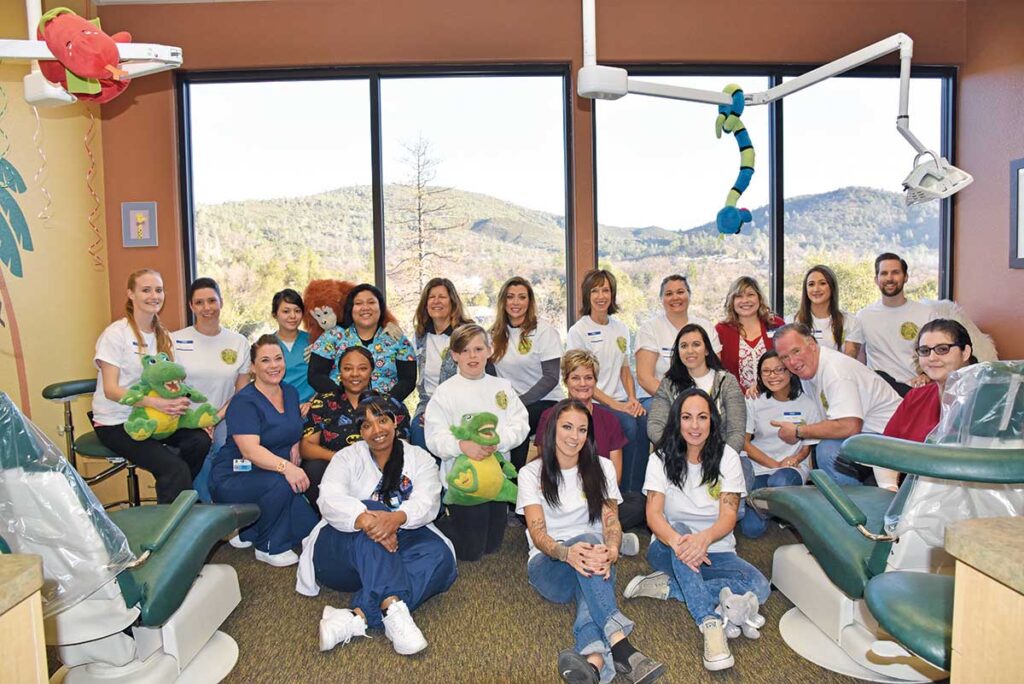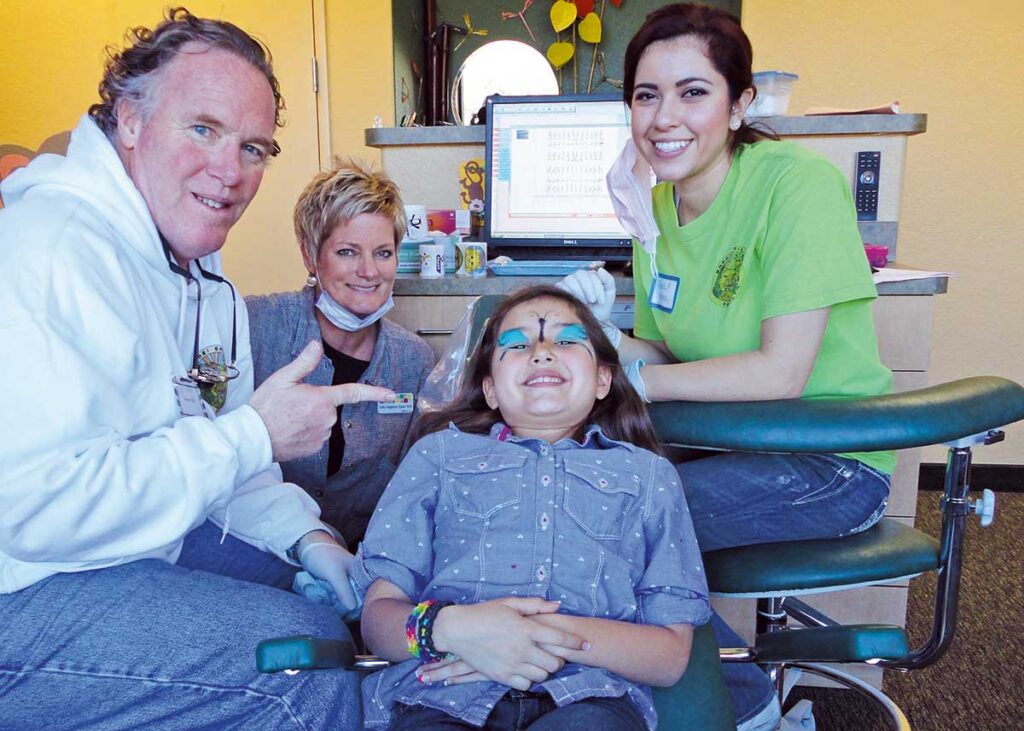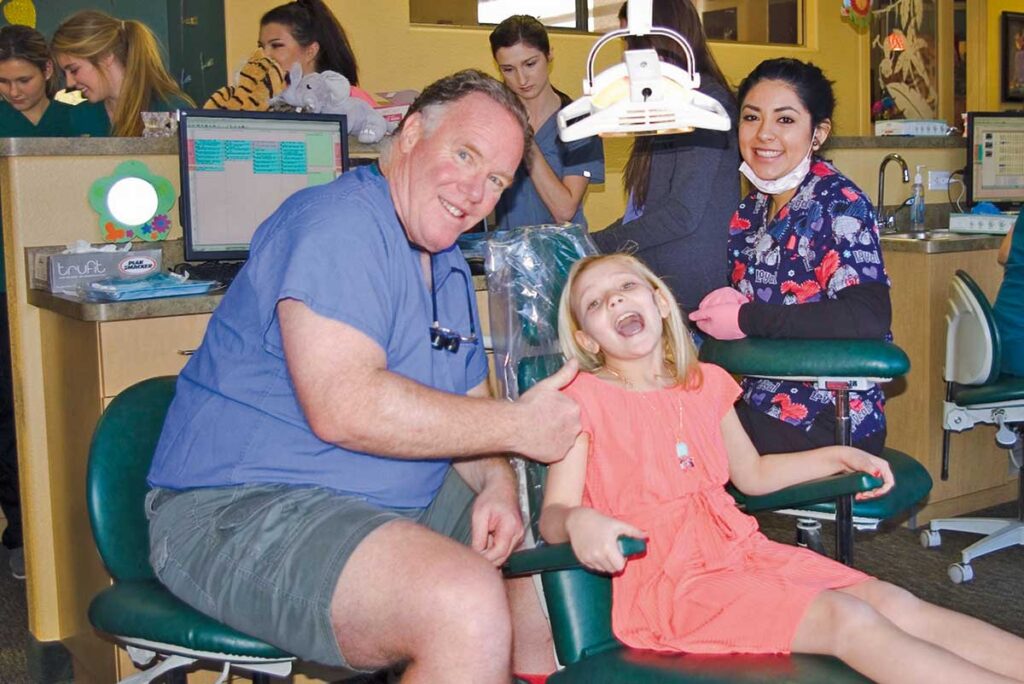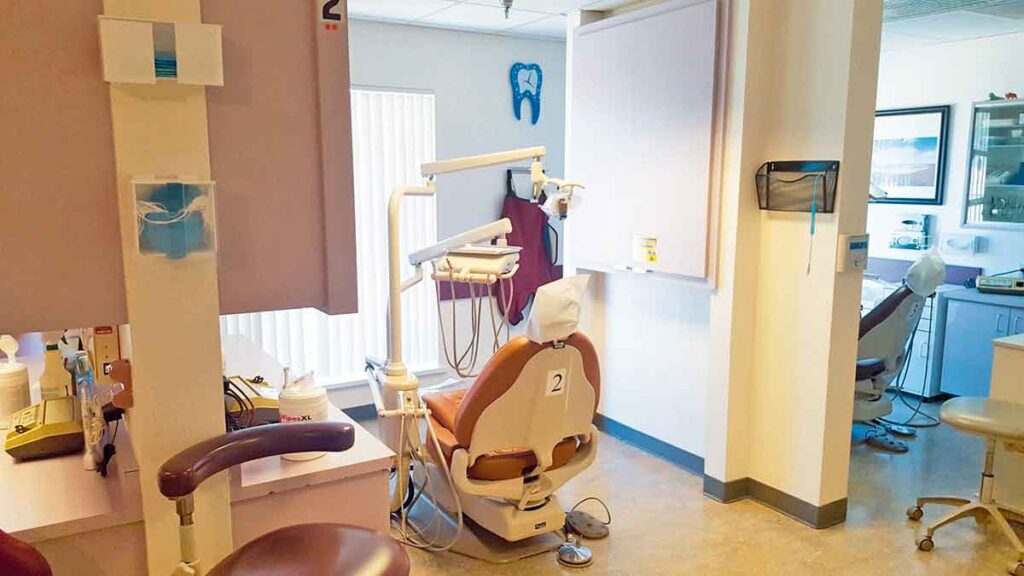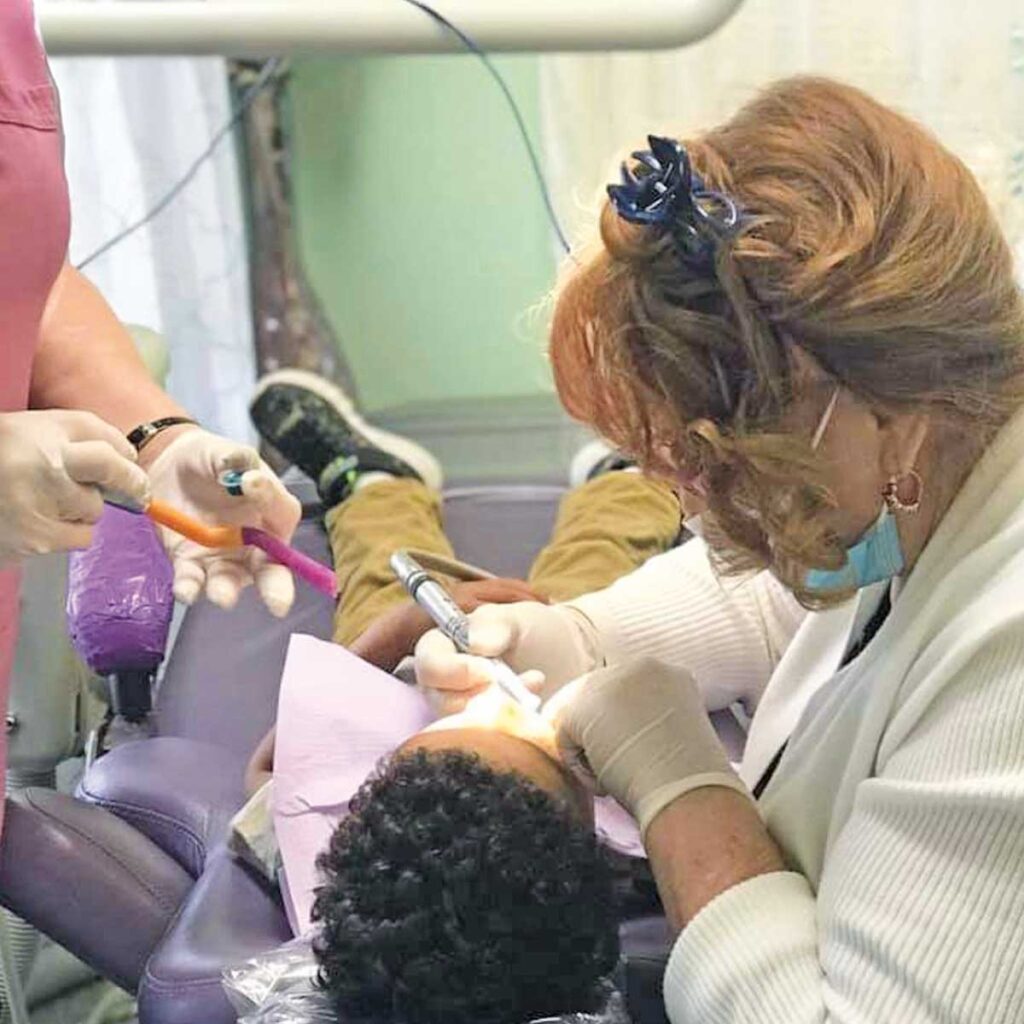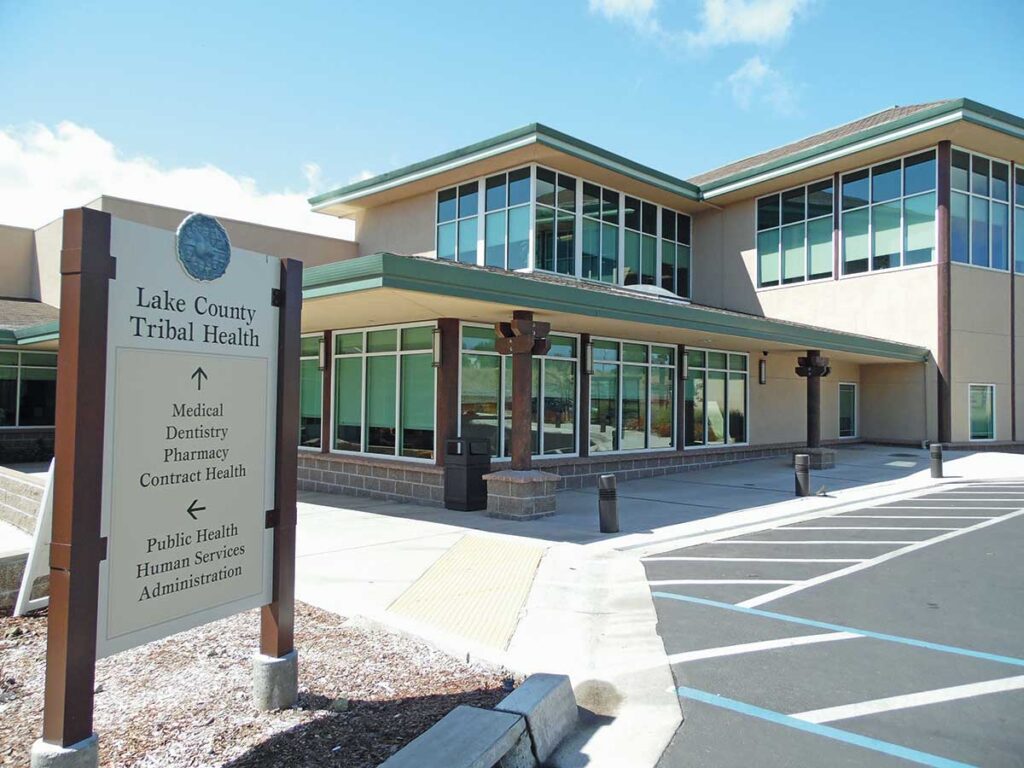What is it Like to be a Dentist in a Rural Community?
By Christina Boufis
After attending dental school in the city of San Francisco, it might seem likely that many graduates would end up practicing in urban or suburban areas. But for several alumni of the Arthur A. Dugoni School of Dentistry, setting up practice in a small town has distinct advantages. What is it like to be a dentist living and working in a rural community?
Dr. Michael French ’01
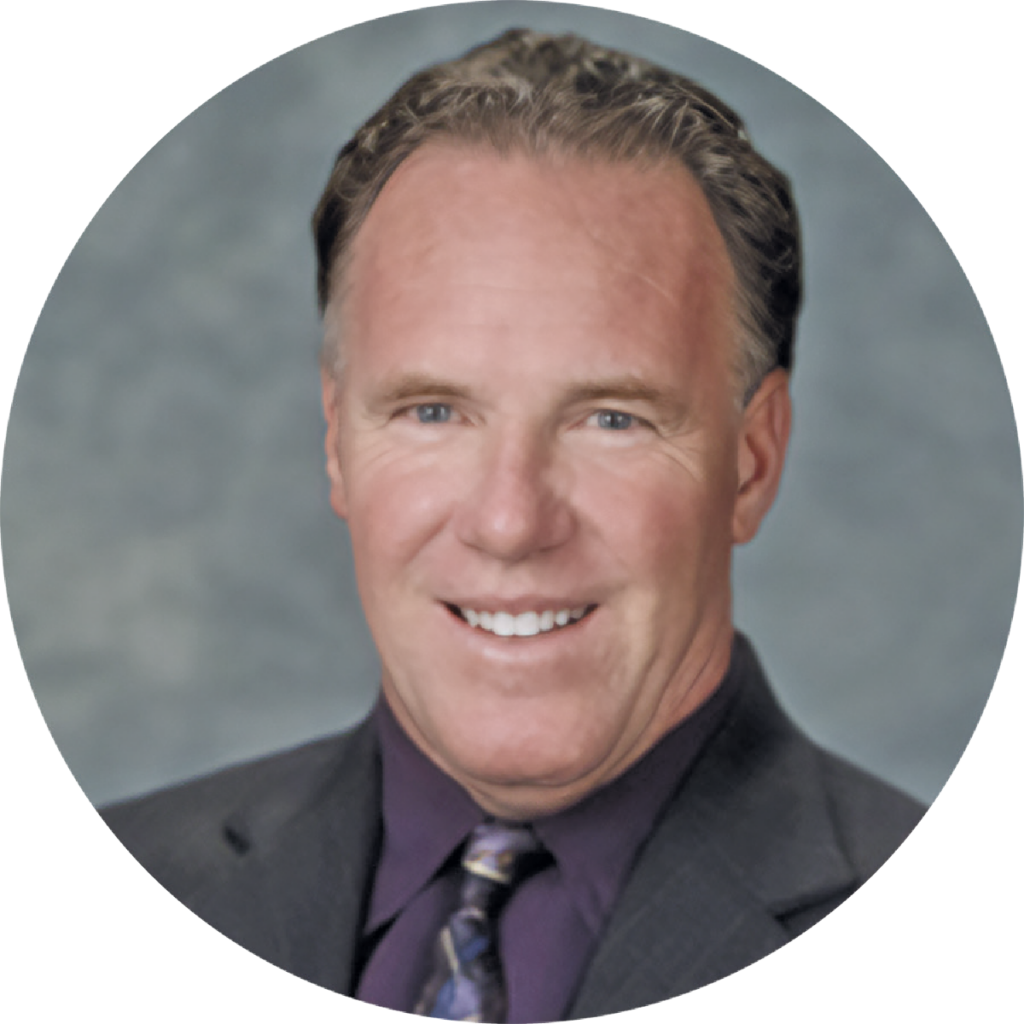
Just ask Dr. Michael French ’01 who owns the only dental practice exclusively focused on treating children and teens in Sonora, California, a small historic Gold Rush town of about 5,000 people in the Sierra Nevada Foothills. “It’s such a small community that residents run into each other often,” French says. “It’s kind of funny. When I walk around a grocery store, a kid will come up and tap me on the arm and open up his mouth. Or I’ll be at the soccer field watching my kids, and a girl will walk up and show me her wiggly tooth.”
French lives in the nearby small town of Murphys, California, where he had owned a vacation home and liked the slower pace of the area. Then, in 2009, when he was looking to start his own practice, he heard about an orthodontist in Sonora who had an empty office space with a view of the mountains.
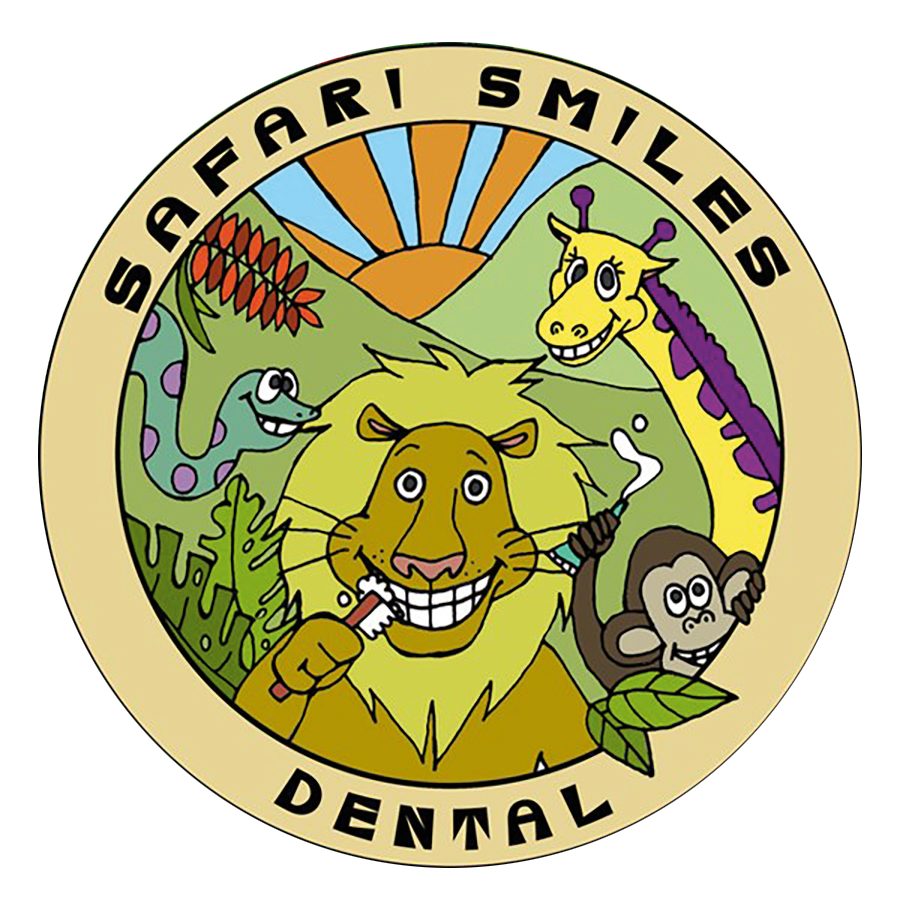
“The timing was right for me to set up practice in a small town and share the building,” he explains. French and his wife Dao were also looking to raise their children in a more rural environment. Previously, they lived in Alameda and French served as dental director for St. Rose Hospital in Hayward.
And then there was a quote from Dr. Arthur A. Dugoni ’48 that French had taken to heart. “Practice where you want to live. Live where you want to practice.” French recalls, “He also said, ‘Be part of the community and people will come to you.’”
That is certainly true for French, who does no advertising but is booked months out. His son, Dr. Chris French, who graduated from A.T. Still University, Arizona School of Dentistry and Oral Health, helps in the practice every other weekend.
And in the Dugoni School spirit of giving back, French does a lot of volunteer work in the community and abroad. “I met my wife on a mission in Vietnam,” French explains. “She was a translator.” Together, they travel to Vietnam to provide dental services to children through their charity, Pacific Smiles.
“Be part of the community and people will come to you.”
Closer to home, French is on staff at Adventist Health Sonora, the only hospital in the county, where he performs dental surgeries on children who need care and supports the hospital’s dental clinic.“We’ll see those kids pro bono as needed,” he says. “And every year we do a big Give Kids a Smile event,” where French and other volunteers will see about 50 to 70 kids who don’t have dental insurance.
“It’s nice to be associated with the hospital that’s very active in the community and a few other volunteer agencies up here,” French says.
French’s family also enjoys small-town living in a beautiful area with mountains nearby, wineries and no name-brand coffee shops. “Everyone knows everyone in a small town, so you know a lot of your patients before they walk in the door. That’s one of the things I like about it,” French says.
Dr. Joshua Calder ’23
Less than a 20-minute drive northeast of Sonora is the small town of Twain Harte, California, (population about 2,000) where Dr. Joshua Calder ’23 practices dentistry.
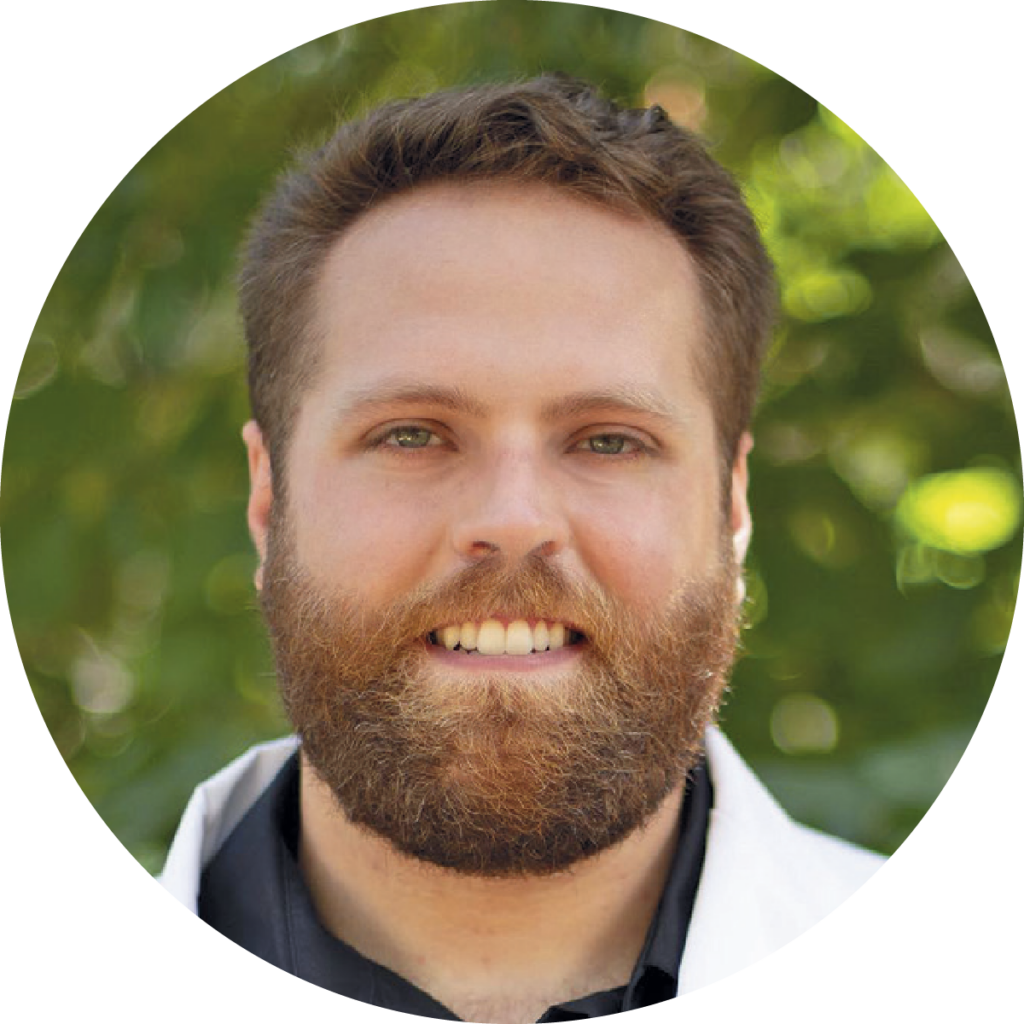
How did he settle on Twain Harte? “I like to do a variety of procedures in dentistry, especially the surgical ones,” Calder says. “And practicing dentistry in a rural area forces you to be creative sometimes because your access to specialists, in many cases, can be limited.”
In addition, Calder grew up in Utah and loves outdoor activities like hiking, fishing and camping, which he has access to living in the Sierra Nevada Foothills with its plentiful trees, mountains and lakes.
While he was still in dental school, Calder heard about an office in Twain Harte where the dentist, Dr. Kyle McDonald ’82, was about to retire. After Calder graduated last year, he jumped at the chance to join the practice which is part of a small dental group with nine offices throught the Central Valley.
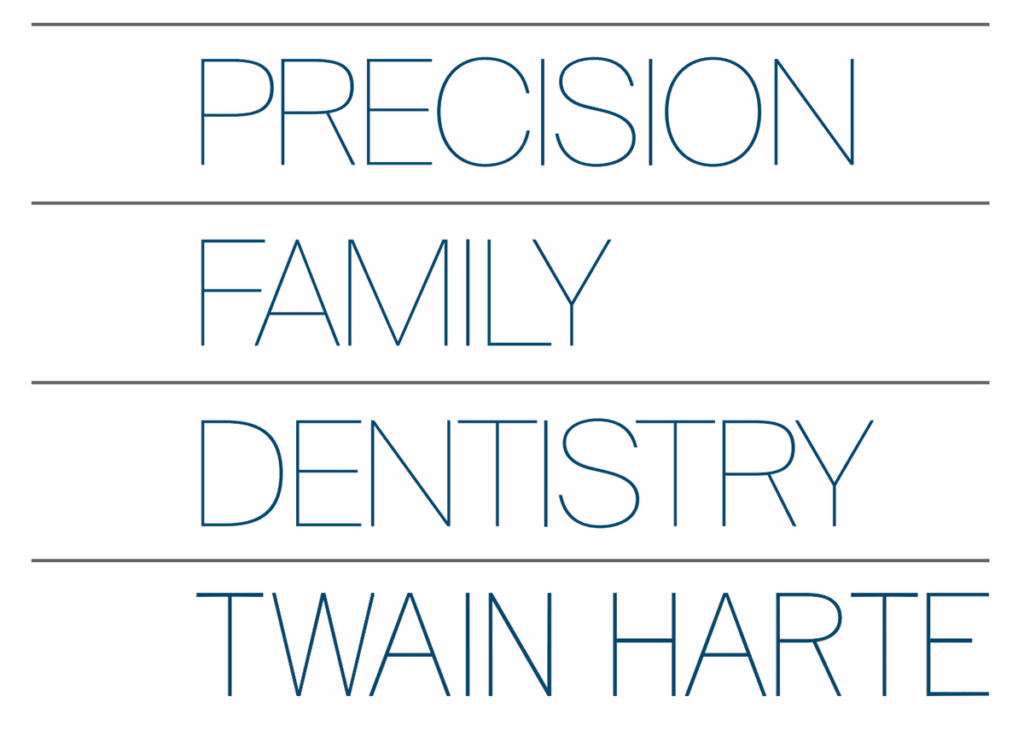
As one of the very few dentists in town, Calder is recognized when he’s out in public. He’s also been embraced warmly by the community and finds it easy to build trusting, doctor-patient relationships. “I think it’s important to have a good reputation when you’re working and living in a small town because news travels fast,” he says. “You need to put your best foot forward and be consistent in the way you practice and treat people.”
While Calder sees patients of all ages, his patient population skews toward older adults, as Twain Harte has a large retiree contingent. “A unique challenge with this type of population is that some patients lose mobility and dexterity near the end of their lives,” he says. “So, you’re trying to find the right balance of comprehensive treatment and palliative care that will keep them comfortable and not overwhelm them.”
“I like to do a variety of procedures in dentistry, especially the surgical ones.”
For instance, many of his elderly patients don’t want to travel an hour away to see specialists. “I think you need to be familiar with the breadth of dentistry in a rural community,” Calder says, “And you need to become comfortable with some of the trickier cases.”
How did his education prepare him to practice dentistry in a rural community? “The Dugoni School gave me access to a lot of opportunities, knowledge and experiences through the instructors and clinics, and I really tried to take advantage of that when I was in school.”
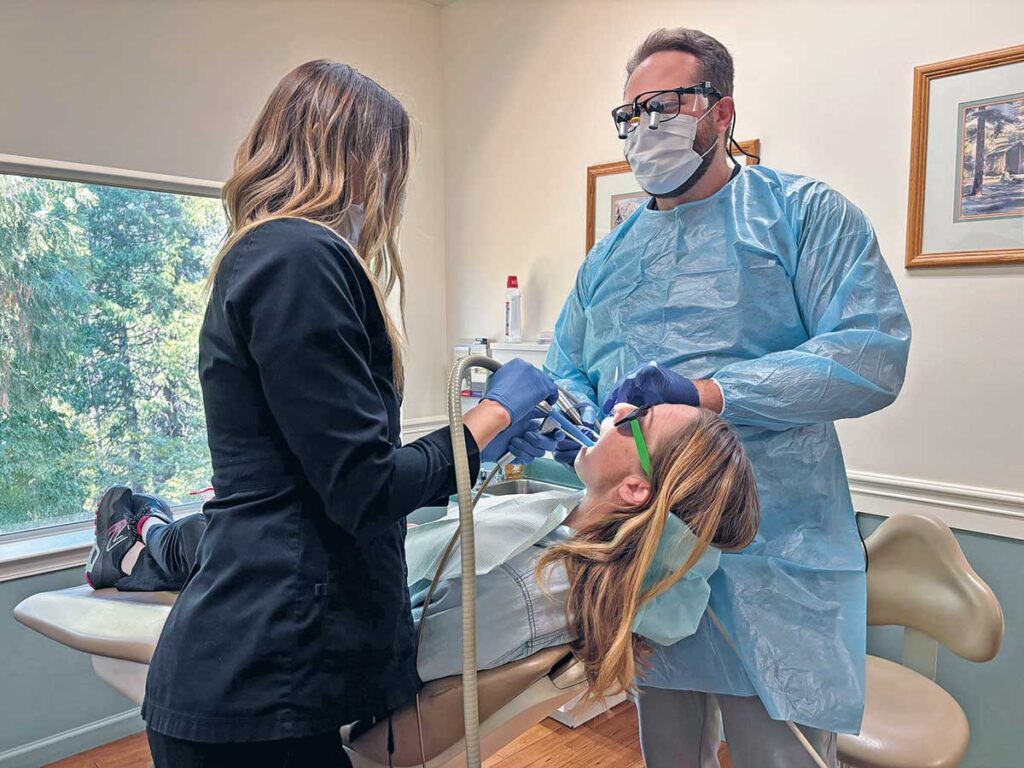 Dr. Joshua Calder ’23 treats a patient.
Dr. Joshua Calder ’23 treats a patient.
Photos courtesy Joshua Calder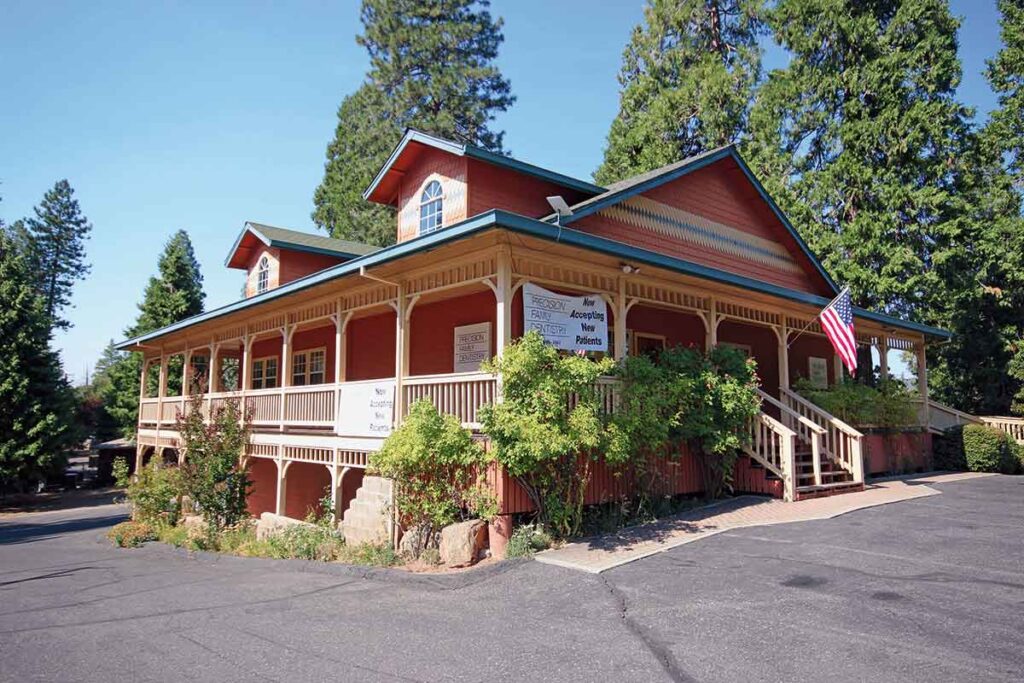 Precision Family Dentistry of Twain Harte dental office
Precision Family Dentistry of Twain Harte dental office
Though he doesn’t own the practice, something he’d like to do in the future, Calder was able to hit the ground running when he joined the office. “From day one, I was able to handle just about anything that came through the door,” Calder says. “And if I wasn’t, I had a great network of alumni, friends and mentors that I could reach out to and help me solve any issues.”
Like French, Calder sees the positives of living and working in a small town. “I like developing a reputation in the community of being trustworthy and of doing good work and providing a good service to help people with their dental needs.”
Dr. Ruby Carlson-Larson ’90
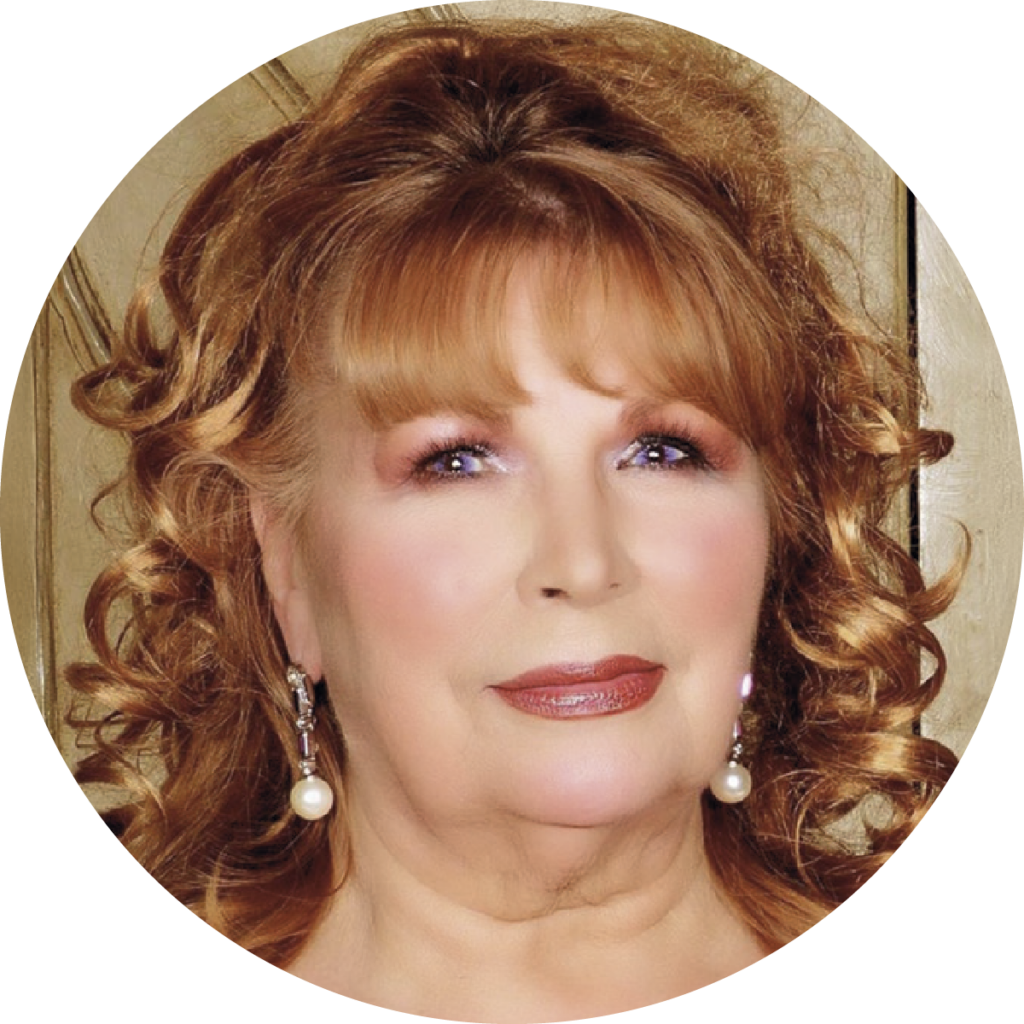
The Clear Lake area in Lake County has been home to Native American tribes, particularly the Pomo Indians, for centuries. One of the small rural towns near California’s largest freshwater lake is Kelseyville, California, (population about 3,300) where Dr. Ruby Carlson-Larson ’90 set up practice right out of dental school.
“I’m an Alaska Native and I went to the Dugoni School of Dentistry on the Indian Health Service Scholarship Program,” Carlson-Larson explains. “I always knew I wanted to work with Indian health clinics. When I got a call about opening up a clinic, I came up to Kelseyville and did the interview.”
There was an immense need for health care in the area in 1990, particularly to serve the Native population, many of whom live on one of the four reservations nearby. But there wasn’t much funding. After about a year, Carlson-Larson was able to help open a health clinic called Tribal Health in the nearby small town of Lakeport. In addition, she traveled as a locum dentist to other Indian health clinics in Mendocino, Sonoma and Lake Counties. Carlson-Larson was one of the very few Native dentists who worked at these clinics.

Dr. Carlson-Larson’s graduation photo from the 1990 CHIPS yearbook
The following year, because of high demand, she opened a private practice to provide care for non-Native patients. “I would work at the Indian health clinic from nine o’clock in the morning until five o’clock at night. Then I’d go to my office and work from six to 10 o’clock in the evening. seeing non-Native patients,” Carlson-Larson says. “I just dedicated myself to dentistry.”
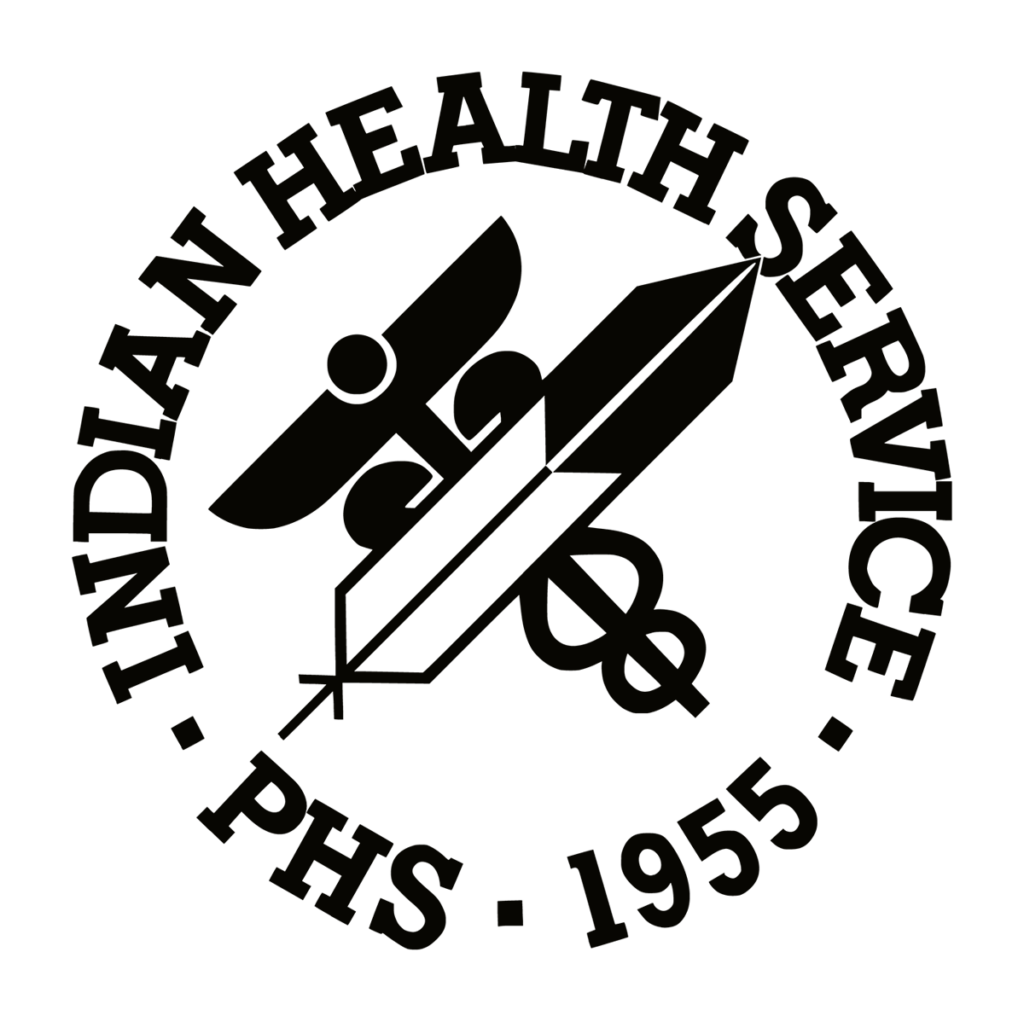
Working in a rural area, Carlson-Larson practices “old-fashioned dentistry where you spend a lot of time with the patient,” she explains. “I do all my own work. The only things I refer out are some complicated surgical extractions.”
Her education at the Dugoni School of Dentistry plus her volunteer work at a hospital and in tiny villages in Alaska prepared Carlson-Larson well to meet the many challenges of treating patients who may not have received much—or any— dental care in the past.
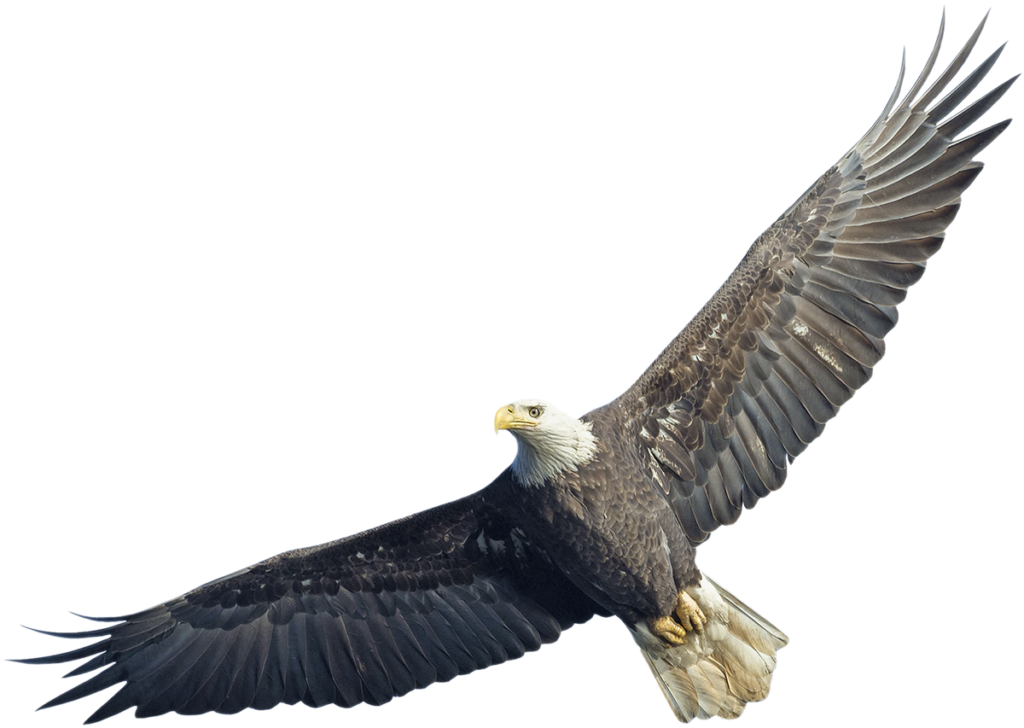
“It’s an emergency all day long,” she says. “It’s not planning something out in advance. The patient comes in and you have to make an emergency assessment on what you’re going to do.”
Carlson-Larson also travels to the reservations, often with an assistant, to meet patients where they are and sometimes to provide care at no cost for those who are most in need. “Once we extracted a person’s tooth right in their car because they didn’t want to come to the clinic,” she explains.
Thirty-three years later, Carlson-Larson is now seeing some of the grandchildren of the patients she’s provided care for all these years. “It’s heartwarming and rewarding to be part of the community,” she says. Carlson-Larson also provides a lot of oral health education to patients, explaining how to care for their teeth.
“That’s how Dugoni School of Dentistry students are,” she says. “They’re teachers. They want to educate.”
Just last year, Carlson-Larson stopped traveling and staying at the reservation Monday through Wednesday. She decided to work only at her practice on Thursdays and Fridays. “I’m trying to slow down a little bit,” she says.
What Carlson-Larson hopes for in the future is that a Dugoni School graduate would be interested in working with this rural and Native population. “I’m willing to be a mentor because there’s just so much to learn,” she says. “Working in a rural area and working on the reservations, you really learn what dentistry is all about. You really have to be on your toes.”
“I do all my own work. The only things I refer out are some complicated surgical extractions.”
For these alumni, practicing dentistry in small towns where they live and working closely with their patients is extremely rewarding. And being able to practice the full breadth of dentistry is nothing but a win-win for the dentists and their patients.
Christina Boufis, PhD, is a freelance health and medical writer from the East Bay.
